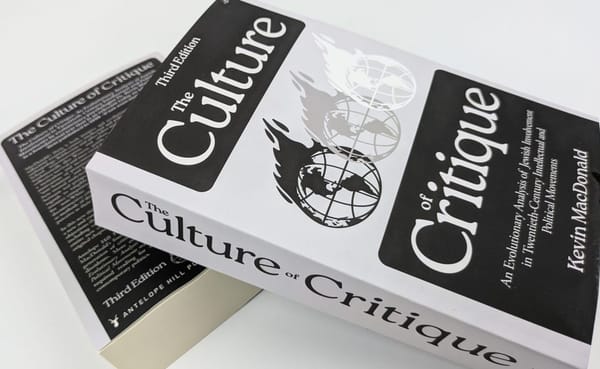Rosaria Butterfield: Pretend Deborah, Veiled Shepherd
Much quarter has been given to women who winsomely approach the work reserved for shepherds; who, upon hearing nobody tell them “No,” linger there long enough to realize that the audience is happy for them to stay.

Rosaria Butterfield is a household name in conservative churches. A former lesbian activist and feminist professor, Butterfield eventually turned to Christ—and away from her sexual degeneracy—before becoming a renowned Christian teacher on issues of sexual perversion in the church. Many praise her as a paragon of faithfulness on matters of sexuality, but hers is unfortunately the story of continued, categorical disobedience to God.
This is a rare occasion where the conclusion must be stated first to avoid the reader’s confusion: the compromises in Butterfield’s teaching, detailed throughout this article, are far from the most significant issue. They are simply the inevitable bad fruit of disobedience of a higher order. If there had been obedience earlier along the path, they would not have occurred.
The primary error leading to Butterfield’s numerous compromises is that, as a woman, she was allowed to become a teacher in Christ’s church at all (1 Tim. 2:12). This is the ultimate root of her unfaithfulness, and her doctrinal errors are merely the manifestation of the inevitable consequences of that root.
Whether she acts as a teacher in the church is a question easily answered by simply searching her name on YouTube. The most common sight with which you are presented is Butterfield standing behind a lectern, teaching a large gathering of co-ed Christians. This is what anyone with more than two brain cells would call “being a teacher in Christ’s church.” She may not be occupying the pastoral role on Sunday morning, but she is, by trade and station, a teacher in the church nonetheless—and not simply one to women and children.
Your Female Teacher Is Not Deborah
Invariably, whenever a woman instructs the church on matters in which it has been unfaithful, her advocates will draw comparison to Deborah, the prophetess and judge of the Old Testament. The claim is dishonest: not only in that those who invoke it fail to recognize the exceptional nature of Deborah’s station (a reality she herself acknowledged), but because in order to be like Deborah, one must actually do what Deborah did.
A 21st-century Deborah must not only act the prophetess and judge (roles Butterfield does not claim) but also point out the great shame in there being no man who will speak boldly and faithfully in her stead. She must lament the judgment that it is on the church to be instructed by a woman where no man will be faithful.
And she said, I will surely go with thee: notwithstanding the journey that thou takest shall not be for thine honour; for the Lord shall sell Sisera into the hand of a woman. And Deborah arose, and went with Barak to Kedesh.
—Judges 4:9
Butterfield satisfies no such conditions. In fact, a woman in today’s church, having a spirit akin to Deborah’s, would simply exhort Christians to give ear to the faithful men on the topic at hand, of whom there is still a supply.
Those proponents of Butterfield’s errors may contend that there are no faithful men who would teach in her stead. Assuming, for the sake of humor, that this is actually true, the men granting her a large platform to teach should be put to shame for sending her to do the work they are too cowardly to do (lest, perhaps, the truth sound too harsh coming from a man). Of course, she brings no such shame on them.
Radical Conversion Is Not a Qualification for Teaching
Aside from being shamelessly enabled as a female teacher in Christ’s church, the unique nature of Butterfield’s position—namely teaching on questions of sexual degeneracy—is simply the latest product of the modern church’s fixation on radical conversions. Platforming repentant sinners to be teachers in accordance with sins to which they were beholden is an apologetic tool long employed by seeker-sensitive churches, as well as any church whose fear of man overtakes their confidence in ordinary evangelism. It is especially desirable when it offers means to subvert Scripture’s regular qualifications for teachers.
Rather than relying on the work of the Holy Spirit through the ordinary means of evangelism, many churches feel they must appeal to the most extreme examples of conversion to have a chance at the ears of unbelievers. The more dramatic the conversion, the more qualified the convert is to teach. Just the same, the shared experience of sin, especially when the sin is severe, is a qualification for teachers which the modern church has eagerly substituted for those stated in Scripture (1 Timothy 2:12; 3:2). Is the church faced with ministering to unrepentant drug addicts? Let the repentant drug addict become their teacher since he best understands the full experience of slavery to that sin. Is the church faced with ministering to unrepentant sodomites? Let the repentant sodomite become their teacher for the same reason.
This appears both winsome and appropriate to many earnest congregations, but it is faithless. Though most churches have the presence of mind not to rush these converts to stations of formal leadership, they become teachers nonetheless. Conferences, Sunday school classes, book tours, and podcasts become the pulpits from which these converts tacitly occupy their roles as shepherds. Faced with fear that the faithful preaching of the gospel through ordinary means and stations may fail, churches subvert Scripture’s stated qualifications for teachers and rely on their own designs. In order to reach the lost, they make converts into teachers on the grounds that they were once slaves to the same sins themselves.
Ought not the pastor or elder be able to teach his congregation on matters of repentance from a particularly grave sin, or is the potency of the God-ordained role of Shepherd stunted when the man has not practiced the sin himself? Should a member of the church be made to take his place at the pulpit on account of his having practiced it? Perhaps, they reason, his empathy will result in a softer message. And perhaps, all the better, the sharp words of truth could come from a woman, and thus sound gentler. Alas, this is the position Rosaria Butterfield finds herself in.
Christians may indeed find themselves appropriately using their gifts to minister to those who are still enslaved to the sin from which Christ saved them. However, Christians must be in obedience to God’s commands first. If their ministry to unbelievers sees them in disobedience to God’s commands, then it is no ministry at all. God may still work through them despite their disobedience, but this should not in the slightest deter them from running to the cross in repentance. In Butterfield’s case, her position as shepherd and teacher is in disobedience to God’s commands and so bears the predictable bad fruit of compromise. I have no doubt that, despite her disobedience, God has been merciful to reach lost sinners through her work—but she should run to the cross and repent of her rebellious ministry nonetheless.
Rosaria Butterfield’s Compromises
Lingering Attachment to Feminism
Butterfield shocked many when she first endorsed the idea of “Biblical Patriarchy.” However, for all her faithfulness in embracing it, even up to rejection of the term “complementarianism,” she is notably reticent to distinguish the natural and distinct position of men in God’s created order as teachers. Instead, she prefers to appeal almost exclusively to their roles as providers and protectors. This undoubtedly influences her ability to reconcile her delusion that, while she may not assume the formal role as pastor in a church, there is nothing out of order with her regular instruction of men on matters of doctrine, morality, and culture.
Butterfield also has no reservations toeing the feminist line of “career women,” even encouraging women to pursue higher education as a general rule. In The Gospel Comes With a House Key, she insists, “Edgy and smart women are vital to the church, yet often the church has no idea how to help them in the shattering ordeal of graduate training.” This, along with the fact that women pursuing marriage may not end up married, is her justification for graduate school as a normal and appropriate pursuit for women in the church. Christian women, she claims, must subject themselves to “the rigors of professional training,” especially rigor which “demands the highest level of academic preparation” (The Gospel Comes With a House Key, p. 105).
Ironically, in a recent interview with Focus on the Family, titled “Loving People Through the Truth,” Butterfield lauds the domestic role of women. She talks about how glorious it is that women seek their reward in the home as “nurturers and supporters,” something she ascribes explicitly to biblical patriarchy. Oh, that she would encourage the “edgy and smart” women of the church to seek reward there rather than graduate school!
Soft Dealing with Grave Abominations
Throughout her work, Butterfield employs an unduly soft (and ultimately ineffectual) approach to confronting degeneracy. In her most recent and widely celebrated book, Five Lies of Our Anti-Christian Age (pp. 310–11), Butterfield recounts an interaction with her sodomite neighbors. In it, she appeases her neighbor’s hatred of the church by likening the actions of faithful Christians to their own degeneracy:
Neighbor:
I want to know why you Christians don’t believe in the vaccine! Don’t you believe in loving your neighbor? ...
Butterfield:
How come gay men rejected wearing condoms? Didn’t you love your neighbor? Or even your sex partners? …
The Bible offers spheres of authority: the family, the church, and the civil government. Health decisions are under the jurisdiction of family. …
Getting the vaccine or not getting the vaccine, wearing a mask or not wearing a mask—it’s a personal choice, not a sin and not a grace. Some Christians reject the vaccine because they are exercising their biblical authority over their health care—over their bodies. Everyone wants freedom, and Christians find their freedom in the Bible. When gay men rejected condoms, that was an exercise in freedom. The question is this: Where does our freedom come from—our personal feelings or something greater? Which freedom is safe, and which is not?
While Butterfield certainly professes to desire salvation for her gay neighbors, she was not loving them by comparing their extreme perversion to a Christian’s liberty of conscience in medical decisions; nor was she loving them by twisting scripture to suggest that the government does not have the righteous authority to punish sodomy (Leviticus 20:13).
Such ill-equipped and ineffectual witness dominates her teachings, as we see again in Five Lies, when she shepherds parents into great disobedience through the answering of various hypotheticals (pp. 301–4):
Should you attend the baby shower for your daughter and her lesbian partner, who are having their baby through artificial insemination? “Yes,” says Butterfield. “As Christians, we love life.”
Should you let your son and his gay lover join you for Christmas, despite your Christian children's plea that you spare their kids from seeing their degeneracy legitimized? “I believe your adult children who are in the Lord need you less,” says Butterfield, suggesting you host the sodomites to the exclusion of your Christian children.
Should you let your gay son bring his boyfriend home for Thanksgiving? “Yes,” says Butterfield, as long as you give them separate rooms.
Most would admit that God’s design for women does not equip them for the work of dealing severely with the sins of others. This does not mean it cannot happen exceptionally, but it is one of many evident reasons in God’s created order why women are not permitted to be shepherds in Christ’s church. Shepherds must deal with ravenous wolves and instruct the flock (such as the parents she ventures to instruct above) on how to avoid them. Because of the feminine roles for which God designed her—something to which she herself appeals—she is ill-equipped for that work.
Supposed Virtues of the Gay Community
Butterfield routinely speaks in gentle and fond terms of what she tolerantly refers to as “the gay community.” Her books are rife with praise of their virtues. Consider this excerpt from her book, The Gospel Comes With a House Key (p. 33):
Douglas’s essay “Deciphering a Meal” was instrumental in developing the radical hospitality that knit the lesbian and gay community together during the confusing and terrifying 1980s and 1990s, when AIDS was called “gay cancer” and when people who identified as gay were believed to be carriers of a plague. Douglas explains how meals provide boundary maintenance between people who share different cultural norms and how dietary laws police the “social body.” I have always loved this essay. But it was only years later, as a Christian, that I could see how identity politics divides people. Table fellowship that depends on identity sameness banks on a false understanding of personhood.
Note, in contrast, how God speaks of Sodom in Genesis 18:20–21:
And the Lord said, Because the cry of Sodom and Gomorrah is great, and because their sin is very grievous; I will go down now, and see whether they have done altogether according to the cry of it, which is come unto me; and if not, I will know.
The wickedness God found was sufficient to cause Him to destroy the city. There was no mention of their virtues. In fact, even in Abraham’s plea to God, he makes no appeal to the virtues of Sodom which, at least in worldly terms, were adequate to entice Lot to foolishly linger there despite not participating in their depravity.
One might imagine the same “radical hospitality” in Sodom that permitted them to conspire together how to best further their wickedness. The opposed reader might say, “Your comparison is dishonest! The story of Sodom is actually a classic example of a lack of hospitality.” Of course, neither do today’s sodomites practice righteous, and therefore true, hospitality. Just as the hospitality of Sodom was meaningless when they sought to have their way with the visitors sent by God, the “radical hospitality” of today’s sodomites is meaningless when they are, for instance, thirteen times more likely than non-homosexuals to molest children (a conservative estimate using available data).
Postmodernism and Rejection of Natural Affections
In her analysis of Douglas’s essay, Butterfield also comes to the wrong conclusion about why the “radical hospitality” of today’s sodomites is wrong, thus betraying her postmodernism. While their fellowship depends on “sameness,” a fault, as she puts it, of identity politics, she asserts that Christian fellowship does not. This is not only patently untrue, as sameness in Christ is the only thing that makes Christian fellowship possible, but demonstrates her commitment to the false postmodern gospel that Christ only abides in diversity. This is even more evident in her most notable work, The Secret Thoughts of an Unlikely Convert (p. 115):
Here is what I think. I believe that there is no greater enemy to vital life-breathing faith than insisting on cultural sameness. When fear rules your theology, God is nowhere to be found in your paradigm, no matter how many Bible verses you tack on to it. ...
I never know how to respond to the women who tell me that they need to be in a church made of people with whom they can identify, people who are like them.
Butterfield rejects the reality that, even as Christians, our sameness in natural things emboldens our fellowship. This reality is exemplified in our fellowship with our immediate families, which is almost invariably the strongest, followed by our fellowship with our local church, our communities, our brothers of shared ancestry, and so on. In Paul’s longing for his “kinsmen according to the flesh” (Romans 9:3), we are reminded that natural sameness is a category not eradicated by the gospel, but enriched by it. It is an intended facet of God’s creation. Sameness, where natural (unlike the “sameness” of shared degeneracy), is an immutable reality of the nature within which God ordains his church to reside, and which will persist in eternity (Revelation 7:9).
Compromise on Public Witness
Perhaps most destructive to her followers is that Butterfield opposes speaking boldly without first earning the right to do so—a right, one can assume, which must be granted at the leisure of the one being rebuked. As she writes in The Gospel Comes With a House Key, “In post-Christian communities, your words can be only as strong as your relationships” (p. 40). This is simply a repackaging of the same faithlessness that led to the seeker-sensitive movement, and a rejection of the exhortations in Scripture which remind us of the power of God’s word and the urgency of rebuke:
For the word of God is quick, and powerful, and sharper than any twoedged sword, piercing even to the dividing asunder of soul and spirit, and of the joints and marrow, and is a discerner of the thoughts and intents of the heart.
—Hebrews 4:12
Thou shalt not hate thy brother in thine heart: thou shalt in any wise rebuke thy neighbour, and not suffer sin upon him.
—Leviticus 19:17
And others save with fear, pulling them out of the fire; hating even the garment spotted by the flesh.
—Jude 23
Further, Butterfield’s assertion denies the scriptural reality that a strong relationship is not a condition for rebuke, but a product of it:
Let the righteous smite me; it shall be a kindness: and let him reprove me; it shall be an excellent oil, which shall not break my head: for yet my prayer also shall be in their calamities.
—Psalm 141:5
Reprove not a scorner, lest he hate thee: rebuke a wise man, and he will love thee.
—Proverbs 9:8
God desires obedience, not sacrifice. Instead of engineering our social environment in hopes that the stars will align for our Christian witness to be effective, we ought to obey God’s dual commands: to live at peace with others as far as it depends on us (Romans 12:18), and to go into all the world and preach the gospel to every creature (Mark 16:15). Neither command waits on the other, and God will use our faithful and unfettered obedience to both as he pleases.
Guard Jealously the Keys of the Kingdom
Much quarter has been given to women who winsomely approach the work reserved for shepherds; who, upon hearing nobody tell them “No,” linger there long enough to realize that the audience is happy for them to stay. This may happen before severe errors of doctrine are made. Her veiled shepherding career may not begin with egregious breaches of orthodoxy. In the case of converts whose repentance of a particular sin was the catalyst for acquiring their platform, it can even start with what looks like extreme faithfulness.
It is a matter of great importance for pastors and congregants alike to jealously guard the positions of shepherd and teacher in their churches. It is important not only for the sake of those who would be shepherded and taught, but for the safety of the souls of those who would assume the work.
My brethren, be not many masters, knowing that we shall receive the greater condemnation.
—James 3:1
By encouraging her to become a teacher in Christ's church, the men in Butterfield’s life not only exhort her towards the sin of usurping a position reserved for Christian men, but invite her to bring upon herself the greater condemnation related to the work. Of course, this does not free her from agency. She will give an account on the day of judgement for the spiritual destruction her compromises have caused. She will also give an account for her presumption in shepherding and teaching the church. But she will not be the only one. Many men will give an account as to why they never told her “No.”
Additional Resources
Marsha West, Rosaria Butterfield Promotes Sam Allberry’s Theology, Catholic Priest Who Says God is Gay and Occultic Scholar
Hiram Diaz, A Critical Review of "The Gospel Comes With A House Key" by Rosaria Butterfield





